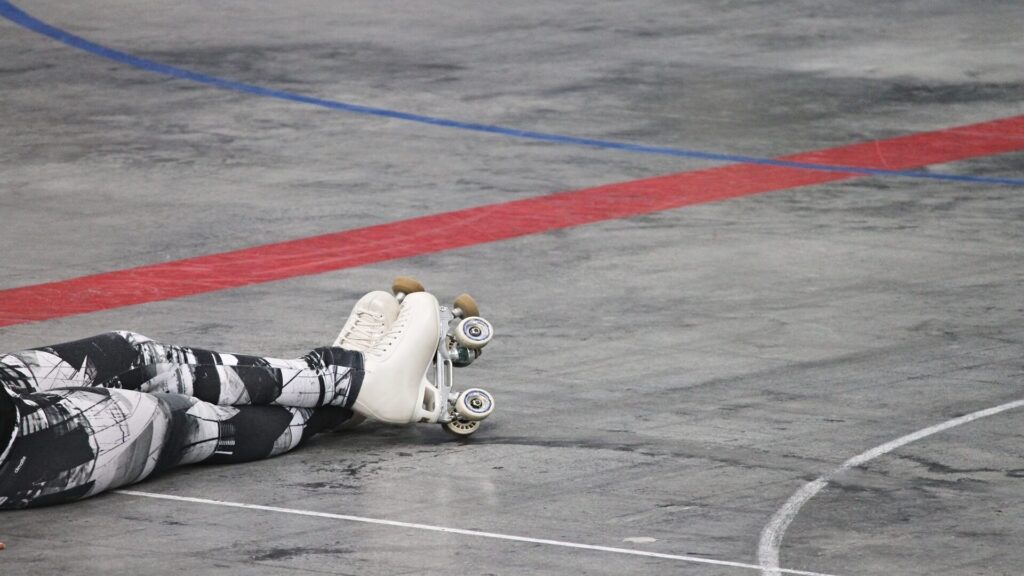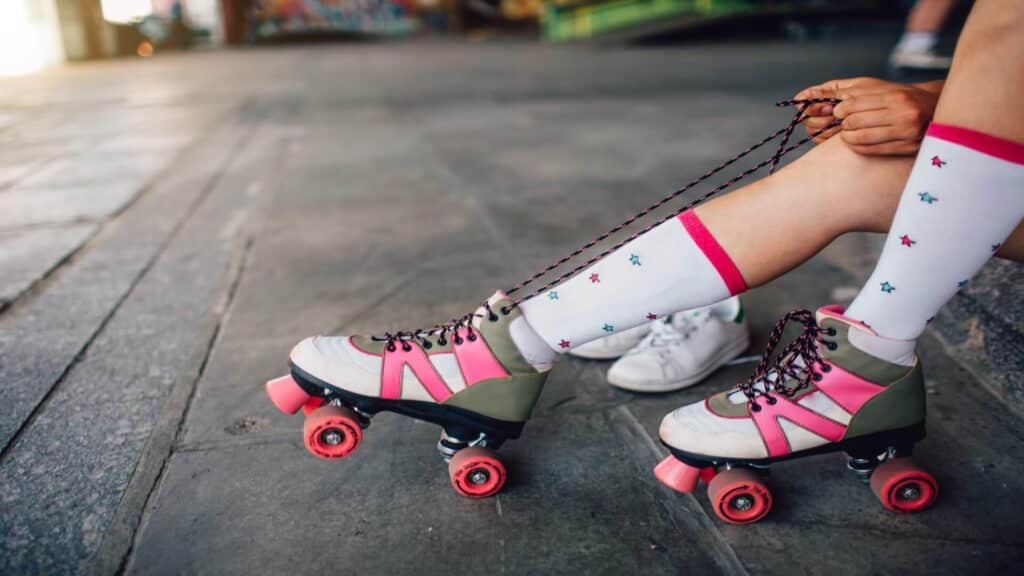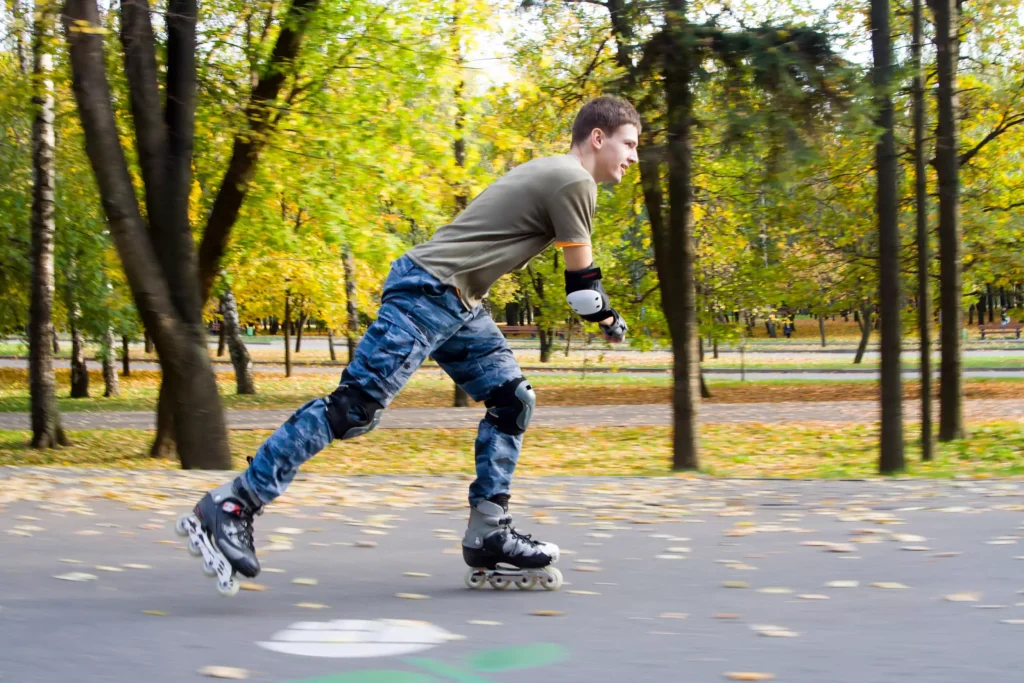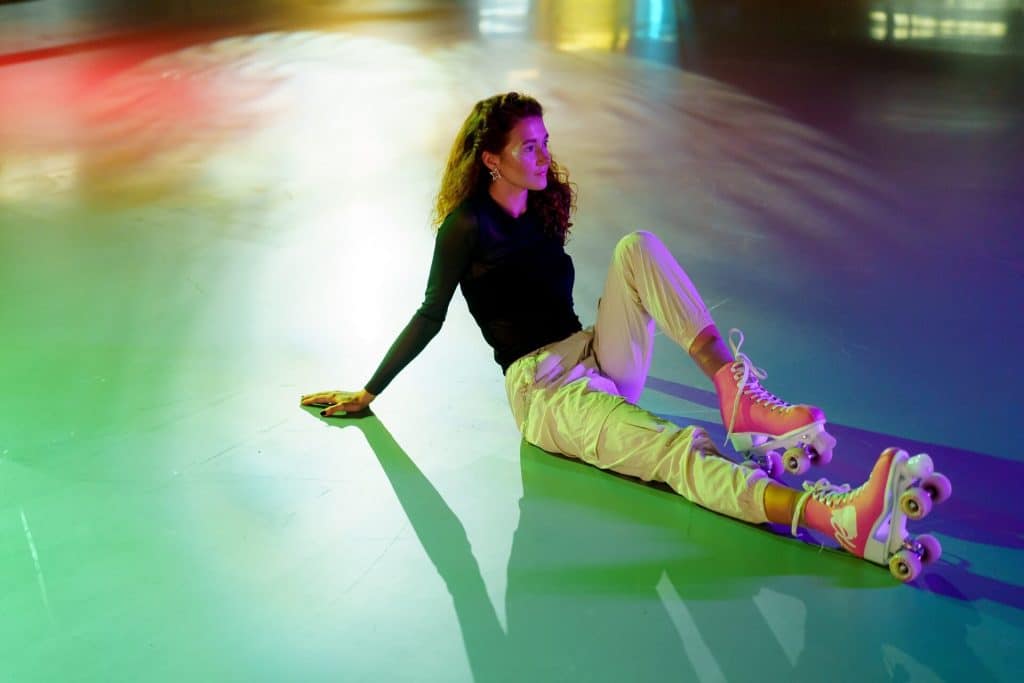The question “Can you roller skate while pregnant?” is top of mind for many active women after finding out they are expecting. Roller skating provides fun, exercise, and stress relief for enthusiasts. However, is strapping on skates and hitting the rink safe during pregnancy?
Unfortunately, the answer is a resounding no. Doctors strongly advise against roller skating while pregnant, even just for casual recreational skating. Though it may seem harmless, skating poses many concealed risks that could endanger both mother and baby.
In this article, we will take an in-depth look at why roller skating and pregnancy don’t mix. We’ll outline the potential dangers and explain why physicians warn against skating when expecting. We’ll also provide alternative activities and tips to help pregnant women stay active safely.
Whether you are an avid skater or just curious about precautions, this guide covers everything you need to know about roller skating while pregnant. Our goal is to educate women on making informed choices for their health and safety during this special time. The verdict is clear – it’s best to stay off skates until after the baby arrives.
Disclaimer: all the information is not a substitute for professional medical advice. Consult a doctor for personalized guidance.
Table of Contents
Is Roller Skating Bad While Pregnant
Pregnant women should avoid roller skating for safety reasons. Roller skating poses many potential dangers and risks. It is important to note that pregnant women have a different center of gravity, which can make balancing on roller skates difficult. This could cause falls and injuries such as bruising, cuts, or broken bones.
When you’re pregnant, it’s especially important to stay safe. Roller skating, rollerblading, ice skating, skiing, and other contact sports like roller hockey are not recommended for women during pregnancy due to some risks that pose a grave danger, such as:
Danger of Falling
Falling during pregnancy, especially in the second and third trimesters, can be extremely dangerous for both the mother and baby. Roller skating significantly increases the chances of falling and should be avoided.
If a pregnant woman falls, it can result in a placental abruption – a serious condition where the placenta detaches from the uterus. This can cause severe bleeding in the mother and deprive the baby of oxygen and nutrients. Placental abruption often requires an emergency C-section.
Falls may also trigger premature labor and delivery. The impact can trigger contractions and put the pregnancy at risk. Preterm birth can lead to long-term health problems for the baby. Their lungs, brain, and other organs may not be fully developed.
Injuries from falls include bruises, fractures, sprains, and head trauma. Pregnant women are prone to loss of balance, so any fall has a high likelihood of impact on the stomach. This can directly harm the fetus.
To avoid these severe risks during pregnancy, doctors strongly advise against roller skating and other activities with a high risk of falling, tripping, or abrupt impacts on the body. The dangers substantially outweigh any potential benefits.
Losing Balance
When it comes to skating, balance is everything and during pregnancy, it’s not what you’re used to. The hormone prolactin makes your joints looser, so on top of being more prone to falls you may notice this while walking as well, your balance might feel off and you could be stepping unevenly.
Being Pushed
On a crowded skating rink, it’s easy to be pushed or tripped by other skaters and lose your balance.
There are several risks to getting pushed during pregnancy, including serious injuries to either you or your baby, like falls and induced labor.
So if you still wonder about the question: is roller skating safe while pregnant? The answer is no, roller skating is a high-risk sport for pregnant women.
Roller Skating While Pregnant First Trimester
Some pregnant women wonder if it’s safe to continue roller skating in the first trimester since the belly is not very large yet. However, doctors strongly advise against skating even in the first three months of pregnancy.
Even though the belly is not prominent in the first trimester, the risks of falling and placental abruption still exist. The placenta fully attaches to the interior uterus wall by the end of the first trimester. A fall could detach it from the uterus, causing severe bleeding and threatening the pregnancy.
Hormonal changes also begin quite early, around 6 weeks gestation. The hormone relaxin starts relaxing ligaments and joints to prepare for childbirth. This can affect balance and coordination. Progesterone also rises rapidly, which can cause dizziness and stability challenges.
While skating may seem easy at first, these hormonal changes subtly disrupt balance and reaction times. Studies show injury risk starts increasing as early as 5 weeks pregnant. For maximum safety, it’s best to avoid roller skating as soon as you find out you are pregnant.
Roller Skating While Pregnant Second Trimester
In the second trimester, around 4-6 months, the belly grows increasingly large and noticeable. The body’s center of gravity shifts forward dramatically during this period. This change in balance makes roller skating extremely risky in the second trimester.
Statistics show the highest rates of falls and injuries occur during the second trimester. The growing belly is a prominent bump, which greatly affects balance and control. Joints also loosen further as the relaxin hormone peaks, making quick reactions and agility more difficult.
Trying to balance and steer on skates with these physical changes becomes nearly impossible. Most serious spills happen in the second trimester as the belly size increasingly throws off equilibrium. Stopping gracefully also gets much harder with the shifted center of gravity.
For maximum safety, doctors advise pregnant women to avoid roller skating entirely during the second trimester. The risk of falls and resulting complications rises exponentially at this stage.
Staying Active Safely During Pregnancy
While roller skating is not recommended during pregnancy, it’s still important for expectant mothers to remain reasonably active. Here are some tips for safe exercise and activity:
- Walking – Going for regular walks is a great way to stay active without high injury risk. Start slow and increase the distance gradually. Make sure to wear supportive shoes.
- Swimming – The water supports your weight, taking pressure off joints and muscles. Do easy swimming strokes and avoid diving or strenuous laps.
- Prenatal Yoga – Look for “prenatal yoga” classes designed for pregnant women. They focus on gentle stretches, balance, and breathing.
- Low-Impact Cardio – Try stationary bikes, ellipticals, or other low-impact cardio equipment at an easy pace. Avoid high-intensity interval training.
- Strength Training – Use lighter weights and higher reps. Focus on maintaining strength rather than increasing it. Avoid holding your breath or straining.
- Listen to Your Body – Stay tuned into pain or fatigue cues and don’t overexert yourself. Stay hydrated and rest when needed.
The key is choosing activities with smooth, controlled motions that minimize strain and impact on the body. Move gently, at a comfortable pace, and stop if you feel off-balance or dizzy. With some adjustments, you can keep active during pregnancy without risk.
Do You Still Want To Skate? Ask Your Doctor
There is no replacement for the experienced advice of a doctor who has helped many women have healthy pregnancies.
Doctors are always aware of their patient’s medical history and can use this information to tell what is safe or not. For example, they might know if their patient has experienced a heart attack before and might be advised against strenuous exercise.
Recovery Timeline After Giving Birth
The recovery timeline for resuming activities like roller skating depends on the type of birth a woman experiences.
For vaginal delivery with minimal tearing or complications, doctors typically recommend waiting 4-6 weeks before gradually resuming exercise. This allows time for the overstretched ligaments and joints in the pelvic region to heal. It also allows the uterus to shrink back to its normal size.
With a vaginal delivery involving extensive tearing or an episiotomy, recovery takes longer. Most doctors advise waiting 6-8 weeks before slowly returning to exercise, due to the more extensive pelvic floor trauma.
For C-sections, recovery also takes longer due to the abdominal surgery involved. Incisions need to fully close and abdominal muscles require proper healing as well. Most doctors recommend 8-10 weeks before starting gentle exercise after a C-section. Jumping or high-impact activity may need to wait even longer.
The most important factor is listening to your body and not overexerting yourself postpartum. Give your body adequate time to recover based on your specific birth experience. When in doubt, always consult with your delivery doctor or midwife for personalized exercise guidance.
Can You Roller Skate with a Stroller?
When you are a parent, you are often looking for ways to get out of the house and have some time for yourself. You might even be looking for ways to do this with your child.
The question of whether you can roller skate with a stroller has been debated for years. For many, the answer to this question is yes, but there are still some who are convinced that it is not possible.
There are various reasons why people might think this way. One of the most common reasons is that you cannot see your feet when you roller skate, which means it could be difficult to stay balanced when you have a stroller on your lap.
Another reason for thinking this way is that some people believe that the stroller will get in their way and cause them to fall over or lose their balance.
The general consensus seems to be that it is possible to roller skate with a stroller, but there are many different opinions about how easy it will be so it is best to try it out for yourself.
The Difficulties of Skating with a Stroller
Some determined parents may still ponder whether it’s possible to roller skate while pushing a stroller. However, most experts advise against this, as maneuvering a stroller while on skates presents several difficulties and dangers.
Balancing on skates requires constant micro-adjustments and keen proprioceptive awareness. Adding a bulky stroller into the mix can throw off your center of gravity and equilibrium. This makes maintaining balance and control exponentially harder.
Turning and steering also become very challenging with a stroller. Having to push and redirect a stroller with your arms while simultaneously balancing on skates is extremely precarious. Sudden turns or stops heighten the risk of falling or losing control.
Expert skating instructor Jane Smith warns, “Maneuvering a stroller with one hand while skating with the other is nearly impossible to do safely. Your risk of falling or veering into traffic goes up dramatically.”
Skating with a baby carrier or front harness is equally dicey. The uneven weight distribution on your body makes balancing precarious. Parents risk falling directly onto their children.
For parents eager to resume skating, the safest option is finding childcare and hitting the skate park solo. While inconvenient, separating skating and childcare is the only way to eliminate the huge safety risks. Your child’s well-being is too precious to jeopardize.
We believe that it is not wise to go roller-skating with a stroller, as you are putting your life and your child’s life at risk. Do you want to go skating? Get a babysitter and keep you and your child safe!
Conclusion
Roller skating may seem like an alluring activity for active pregnant women seeking fun exercise. However, the risks associated with strapping on skates while expecting to make it an unsafe choice. As we’ve covered, the answer to “Can you roller skate while pregnant?” is a resounding no.
Doctors strongly warn against roller skating during pregnancy due to the high chances of falls and resulting injuries. The impacts and balance challenges can endanger both mother and baby at any stage. There are many safer ways for expectant mothers to stay fit.
While giving up skating may be disappointing for enthusiasts, it’s a wise temporary sacrifice for your health and your baby’s wellbeing. The good news is this is just a pause – not the end of your skating days.
Take comfort in knowing you can likely return to zoomin’ around the skate park after recovering from childbirth. In the meantime, be patient, be cautious, and enjoy creating your new family. Wishing you a happy, healthy pregnancy and looking forward to seeing you on wheels again soon!
Did this article help you out? Would you like to read more about roller skating? read our guides below!









